The Role
As an academic family physician, you are drawn to opportunities to make a difference and contribute to the future.
Fundamentally, you are a clinician – you understand that the practice of compassionate and continuity-based family medicine is an investment in people and communities – each encounter an opportunity for the restoration of health, hope and dignity. The work of family medicine matters in the world.
You are also a dreamer, an advocate, a detective and perhaps an artist. You want to teach and educate the learners who will carry family medicine into our future – and you also want to create, support, test-drive and research new ways of educating and teaching.
You have a voice and a vision. You believe in something larger than yourself – you want to find yourself in a community of scholars and innovators who will both uplift you – and give you the chance to give back.
You have an open mind, an open heart and the capacity for both gratitude – and speaking truth. Now more than ever, our collective work is fueled by purpose, a commitment to justice and inclusion – and the need for grace, forgiveness and the willingness to change and be changed.
Information Box Group

Are you ready for a career in academic family medicine? Apply Now
Do you want to contribute to better health and a brighter world and be a part of something bigger in academic family medicine?
Do you like being involved in a variety of clinical and non-clinical activities and find joy in teaching different learners at different stages of development?
Are you committed to the health of the collective and transforming the health system through teaching, learning, and scholarship?
Are you committed to Indigenous Reconciliation, equity, diversity and inclusion (EDI), and making health care accessible for all?
Are you interested in supporting existing and emerging department priorities (including EDI, planetary health, obstetrics, and health system transformation), and developing leadership skills for collective action in clinical and educational transformation?
Are you the kind of person who loves the give and take of teamwork? Of caring about and being cared for by your colleagues?
| Clinical Expectations | Clinical Support |
| Maintain a Ministry of Health rostered practice size of 900 patients | High functioning family health team in state-of-the-art clinic facilities |
| Supervise 1 to 3 family medicine residents | Video monitoring, electronic competency tracking, faculty development |
| Participate in collective development of all learners | As above plus collegial “pro-learning” environment |
| Weekday on-call and evening clinics – 2 to 4 times per month | Clinical admin; 1:1 daytime hour trade for evening hours |
| Weekend on-call – 2 to 3 times per year | Weekend call stipend |
Fluency in Portuguese would be an asset
| Long-term Academic Contributions |
Academic Support |
| Participate in teaching opportunities outside of the clinic | Time protected for academic pursuits |
| Participate in departmental leadership and administration with research and/or education | Protected time and partnership with expert professional staff |
| Systematic contribution to discipline of family medicine and primary care | Membership in the David Braley Primary Care Research Collaborative |
| Curiosity, a collective mindset, willingness to take risks | Great colleagues, culture of innovation, discovery and mutual support |
Information Box Group
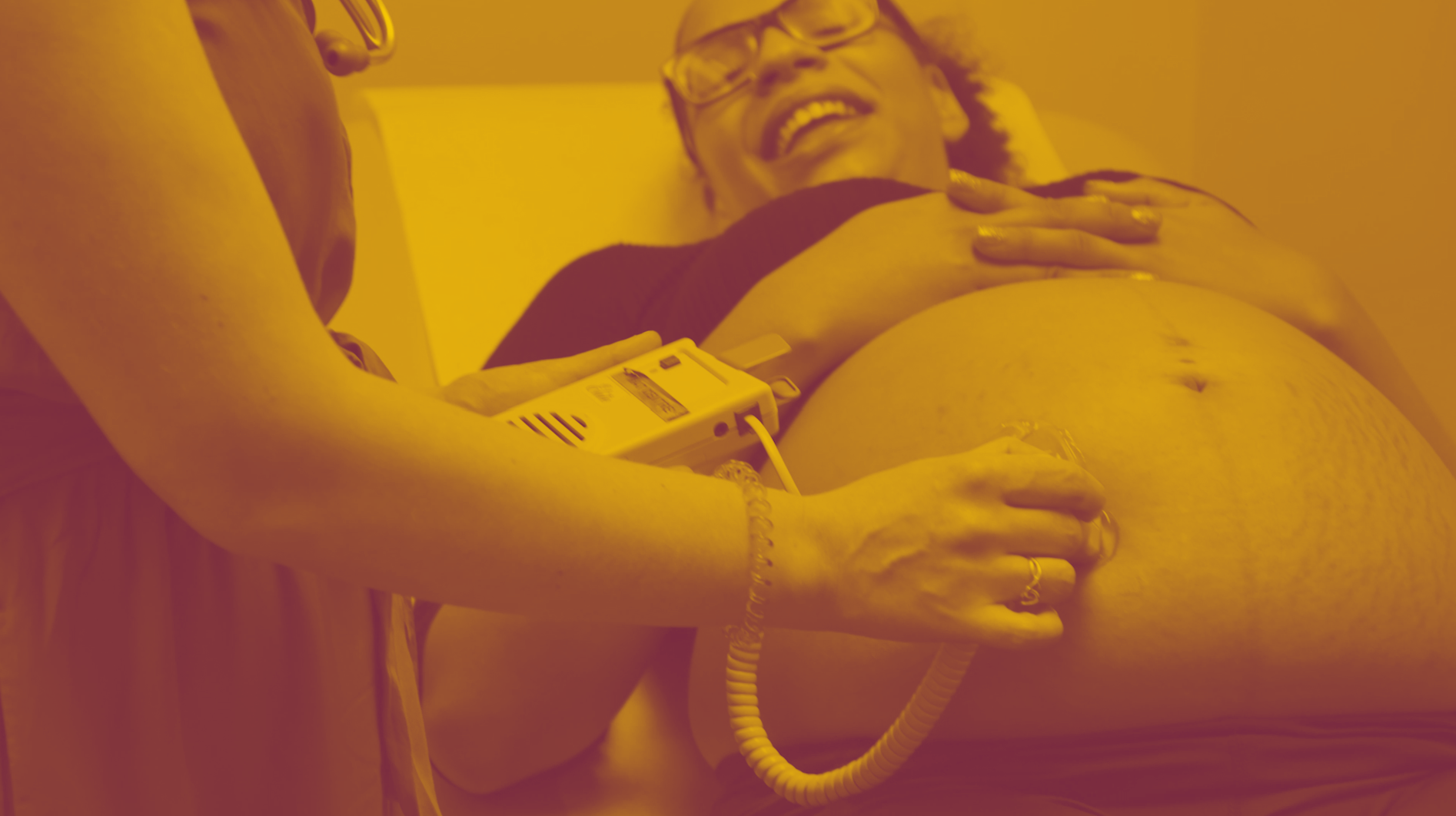
Do you practice family medicine obstetrics (FMOB)?
We offer:
- full-scope family medicine obstetrics in a busy urban teaching hospital surrounded by a dynamic team of family physicians and allied health providers
- enhanced care to equity deserving populations including newcomers and families struggling with substance use disorders
- dedicated time as a full-time faculty member to provide prenatal care in a hard-call model with support for clinical coverage while on call and dedicated post-call time
- ability to role model full-spectrum cradle-to-grave family medicine with support and mentoring for full-scope family medicine obstetrics and teaching opportunities in intrapartum care and women’s health (medical abortion, LARC clinics)
- scholarly opportunities in reproductive education and research in equity deserving populations
- competitive salary with benefits and mentorship through the promotion and tenure process
About Us
The Department of Family Medicine at McMaster University is united in our mission of primary care for better health and a brighter world. We are focused on strengthening the impact of family medicine on the health and well-being of all people and their communities. Our team is accomplishing this through collaboration, capacity building and person-centredness. Building on a 50-year history, we are changing the way health care is designed and delivered in Canada.
Information Box Group
Learn More
Home to 200 family medicine residents and over 200 medical students each year
Learn More
Over 1,300 faculty members teaching across 12 geographic sites
Learn More
Broad engagement of faculty members and staff in research and scholarship supported by over $10 million in funding each year
Learn More
Over 40,000 patients served by the McMaster Family Health Team in 2 clinical teaching units in Hamilton
Information Box Group
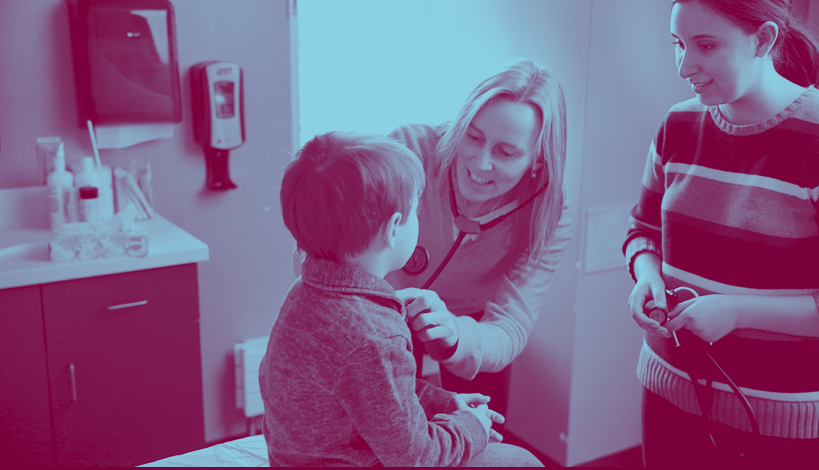
Our Mission
Together we serve, teach, discover:
Primary care for better health and a brighter world
Our Values
Honouring
We are committed to honouring and respecting others and ourselves.
Creative
We practice creative and courageous inquiry and action.
Generous
We engage one another with generous interdependence.
Strategic Anchors
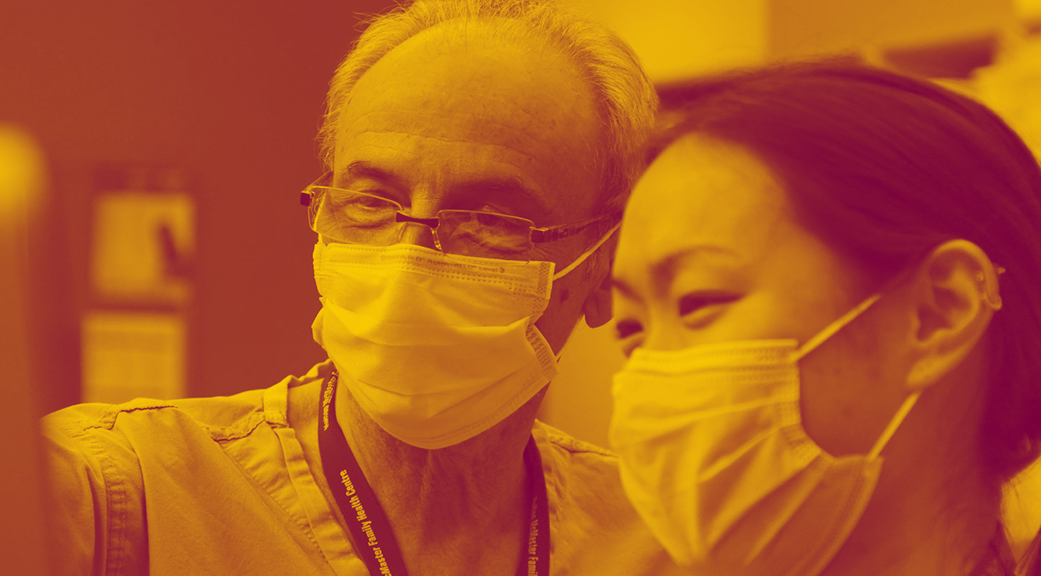
We invite ideas
We foster an environment of curiosity and wonder. We offer faculty members resources and support to turn their wonderings into research that will answer important questions for all of us.
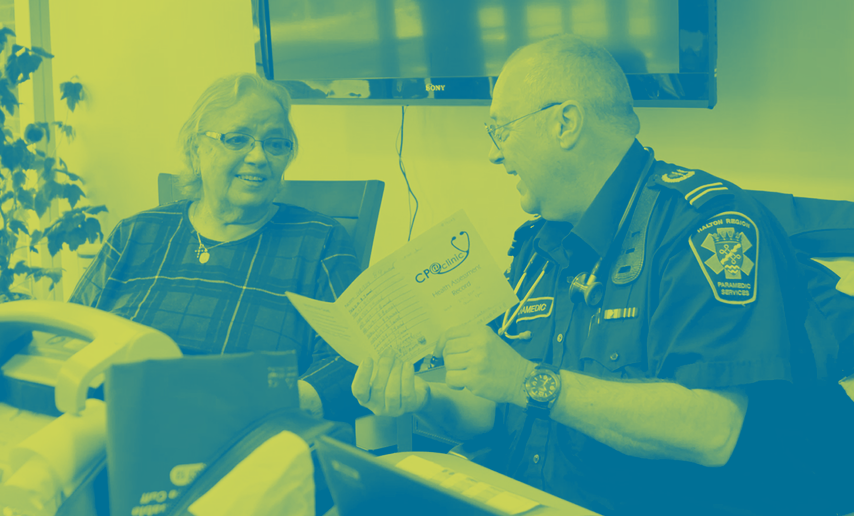
We are community connected
We have strong partnerships with primary care and health care partners to share knowledge, resources and extend programming where needed to the broader community.

We value primary care as an instrument of social change
Primary care is essential to continued health system improvement, person-centred care in communities, and optimal population health. We are committed to advocating for the essential role of primary care in the health care system.
Why McMaster?
The Department of Family Medicine, McMaster and Hamilton communities have a lot to offer, including a world class institution, welcoming environment, and a vibrant and diverse community. Read on to learn why you should come work with us.
Information Box Group
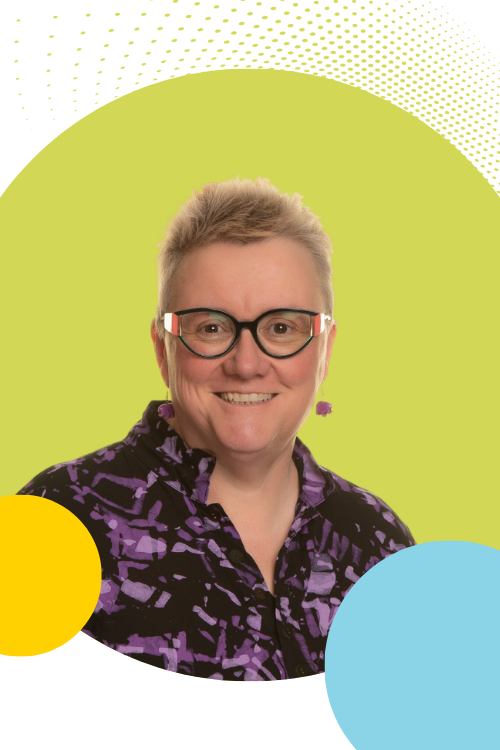
Book a meeting with Cathy to learn more
The world is changing. Family medicine and primary care is the foundation of all high performing health care systems. The Department of Family Medicine at McMaster University is looking for people to help lead the transformation of our health care system.
As a department, we are about caring and learning from our patients, shaping future generations of health care practitioners – and using our scholarship, advocacy and leadership to inform policy and system design.
We are also about supporting one another through the ups and downs of doing work that is both meaningful – and also, at times, demanding.
Come join our team. Bring your heart, your imagination, your energy, your curiosity – and your sense of humor!
– Cathy Risdon, Chair
Information Box Group
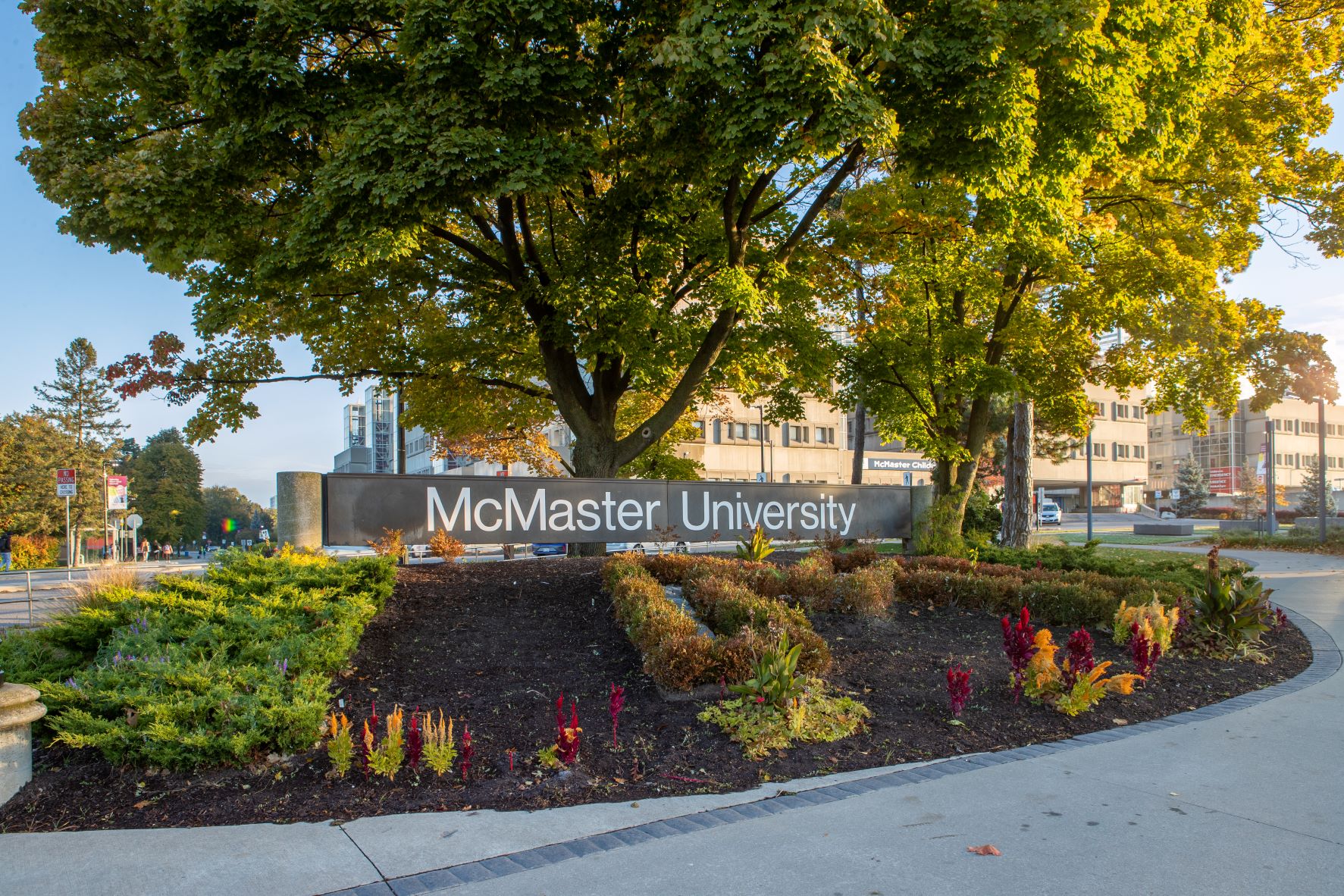
McMaster University Learn More
Consistently ranked in the world’s Top 100, McMaster placed 85th out of more than 1,500 institutions and fourth in Canada in the 2023 Times Higher Education’s World University Rankings.

Hamilton Learn More
Hamilton is a vibrant, diverse city rich in restaurants, cultural activities, nature and more. You will enjoy the hidden secrets of Hamilton, bordered by the Niagara Escarpment, wine country, and the Bruce Trail.
Indigenous Health
The McMaster University Department of Family Medicine is committed to healing and strengthening relationship with Indigenous Peoples and communities, to ensuring all aspects of our work are culturally safe and reflect awareness of Indigenous history and experience, and to living in accordance with the Two-Row Wampum Agreement and the core principle of “nothing about us without us”. This commitment is expressed in many ways, guided by Indigenous faculty members in DFM and colleagues in the Indigenous Health Learning Lodge of the Faculty of Health Sciences (IHLL). Some examples include:
Information Box Group
Indigenous Teaching Through Art Program
We have offered an experiential learning program that was co-designed and co-delivered by Indigenous and settler faculty members in DFM to all staff and full-time faculty. The program’s purpose is to share knowledge about Indigenous history and experience in Southern Ontario and Canada as one step on the journey of truth and reconciliation.
Creation of Leadership Structure and Roles for Indigenous Health in DFM
Through strengthening relationship between DFM and IHLL, and with leadership from Dr. Karen Hill, we are co-creating terms of reference for an Indigenous Health Committee in DFM, with two key leadership roles to lead Indigenous Health in the department (Indigenous Health Knowledge Carrier and Indigenous Health Steward).
Indigenous-led Culture of Safety Circles in Curriculum
We are offering family medicine residents the opportunity to have a direct experience of the circle process that is a central Indigenous practice, facilitated by Dr. Karen Hill with a focus on cultural safety.
Information Box Group
Indigenous Health Fund
DFM has invested $1,000,000 in an endowment to support Indigenous Health priorities defined and overseen by the DFM Indigenous Health Committee in collaboration with the IHLL. The endowment in perpetuity signals DFM’s unwavering and unchanging commitment to the full journey of reconciliation, and to returning to relationship with Indigenous Peoples in alignment with the Two-Row Wampum. Initial priorities for the fund are:
- integration of Indigenous wisdom and ways into primary care;
- enabling DFM services and programs to fulfill commitment to truth and reconciliation, and to reflect the Two-Row Wampum agreement in words, processes and actions; and
- leadership and support for the emerging role of the Indigenous primary care physician, including sustainability.
Collaboration and Allyship with Indigenous Leaders of Biindigen Well-Being Centre
We are in relationship with leaders of De dwa da dehs nye>s Aboriginal Health Centre (“DAHC”), Niwasa Kendaaswin Teg and Ontario Aboriginal Housing Services to support realization of their vision for transformative Indigenous health and community services. We are also joining with DAHC in co-creating an integrated primary care clinic serving Indigenous People as well as settler members of the surrounding community, and will jointly govern the clinic in accordance with the Two-Row Wampum Agreement and the Dish With One Spoon Wampum Agreement.
Indigenous Health Learning Lodge Learn More
The Indigenous Health Learning Lodge (IHLL) works alongside the Faculty of Health Sciences towards creating a learning environment that is culturally safe – working with humility to enable sustainable systems of change and to advance the work around the concepts of truth, reconciliation, and anti-colonization embracing all aspects of Indigenous health and well-being.
Equity, Diversity & Inclusion
The Department of Family Medicine is committed to working through an EDI (equity, diversity, and inclusion), ARAO (anti-racism & anti-oppression) and Indigenous reconciliations lens. We aim to create and sustain a culture that values diverse interests, needs lived experiences and social identities across equity-deserving communities. In partnership with our leadership, department members and the broader community, we champion a collective effort towards a cultural shift that embraces disruption and dismantling of systems and structures of oppression. This work is lead and enabled by our full-time EDI and Anti-Racism Partner, a role we established in 2021 in collaboration with McMaster’s Equity and Inclusion Office.
Information Box Group
Alicia Wright
MSc
Manager, EDI & Anti-Racism Initiatives
Alicia is a dedicated professional with expertise in equity, diversity, inclusion, anti-racism and anti-oppression (EDI/AR/AO), who currently serves as DFM’s Manager, EDI & Anti-Racism Initiatives. She is a central resource for leaders, faculty and staff across DFM’s domains. She actively collaborates with FHS, McMaster and Hamilton-based partners on programs and initiatives that enable greater equity, inclusion and belonging.
Prior to joining DFM, Alicia worked as the EDI Manager and a part-time faculty member at Sheridan College. She also spent several years in the non-profit sector as a workplace EDI consultant.
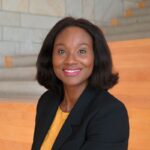
Alicia Wright
MSc
Manager, EDI & Anti-Racism Initiatives
Alicia is a dedicated professional with expertise in equity, diversity, inclusion, anti-racism and anti-oppression (EDI/AR/AO), who currently serves as DFM’s Manager, EDI & Anti-Racism Initiatives. She is a central resource for leaders, faculty and staff across DFM’s domains. She actively collaborates with FHS, McMaster and Hamilton-based partners on programs and initiatives that enable greater equity, inclusion and belonging.
Prior to joining DFM, Alicia worked as the EDI Manager and a part-time faculty member at Sheridan College. She also spent several years in the non-profit sector as a workplace EDI consultant.
Alicia Wright
MSc
Manager, EDI & Anti-Racism Initiatives
Alicia is a dedicated professional with expertise in equity, diversity, inclusion, anti-racism and anti-oppression (EDI/AR/AO), who currently serves as DFM’s Manager, EDI & Anti-Racism Initiatives. She is a central resource for leaders, faculty and staff across DFM’s domains. She actively collaborates with FHS, McMaster and Hamilton-based partners on programs and initiatives that enable greater equity, inclusion and belonging.
Prior to joining DFM, Alicia worked as the EDI Manager and a part-time faculty member at Sheridan College. She also spent several years in the non-profit sector as a workplace EDI consultant.
We strongly value interdisciplinary collaboration across the department and continue working towards fostering an environment where all our staff, faculty and learners are active agents of transformative change. Through our policies, practices, and programs we have made significant efforts in embedding equity, diversity and inclusion at every level and domain of the department.
In 2021-22, we had 750 attendees for 12 educational events, workshops, and training across the department. We prioritized the facilitation of learning and unlearning opportunities and continue to develop innovative, action-oriented approaches to education and training. Our department also challenged ourselves when reviewing the CaRMS process and implemented the first EDI-specific question within our interview stations. Training 242 file reviewers and interviewers on implicit bias, we impacted 626 applicants in our 2022 CaRMS process.
Department of Family Medicine
Anti-Racism Collaborative Learn More
The DFM Anti-Racism Collaborative (ARC) is a community of practice that aims to sustain a safe, brave and inclusive environment for all Indigenous, Black and racialized folks within and outside of the department.
Anti-Racism Collaborative - Learn More
The DFM Anti-Racism Collaborative (ARC) is a community of practice that aims to sustain a safe, brave and inclusive environment for all Indigenous, Black and racialized folks within and outside of the department. With a commitment to working within an anti-oppressive and anti-racist framework, the ARC prioritizes 5 core pillars: consultation, advocacy, outreach, education and evaluation. Working with leadership, department members and the community, the ARC supports, guides and leads collective efforts toward a cultural shift that embraces disruption and dismantling of systems and structures of oppression.
The ARC provides a safe and accountable space to raise concerns, issues and experiences of racism and to center the voices and lived experiences of Indigenous, Black and racialized staff, faculty and learners across the Department of Family Medicine. A core objective of this group is to advocate for increased diversity at all levels and to explore how DFM can address the wider issue of racism in medicine, while working with non-racialized department members to provide education and training for all DFM members to foster an anti-racism culture.
Racialized Community of Support Learn More
The Racialized Community of Support (RCS) is a support space for all self-identifying Indigenous, Black and/or racialized staff and faculty.
Racialized Community of Support - Learn More
The Racialized Community of Support (RCS) is a support space for all self-identifying Indigenous, Black and/or racialized staff and faculty. This support space exists in response to the heavy burden that many Indigenous, Black and/or racialized faculty and staff carry from the marginalization, isolation and under-representation often felt when navigating both professional and personal spaces. It seeks to be a space for members to alleviate the mental, physical and emotional strain that derives from burnout and cultural taxation.
This group aims to provide confidential peer support to Indigenous, Black and/or racialized faculty and staff in a safe and respectful environment. This may take the shape of sharing lived experiences, expressing concerns and needs, identifying challenges faced, confiding about incidents of racism, seeking advice and peer support, or building a community of trust and understanding. Through these processes, members may develop skills and language to help navigate the daily experiences of being a Black, Indigenous and/or racialized member of a historically white, colonial space and in turn foster both collective and individual well-being and a sense of belonging.
Mentoring for Inclusive Excellence (In Progress) Learn More
The Mentoring for Inclusive Excellence program aims to provide the support, guidance and facilitation faculty require to develop and maintain a professional identity while successfully navigating and advancing on their career path.
Mentoring for Inclusive Excellence (In Progress) - Learn More
There is growing recognition of the importance and need for diversity at all levels of academic medicine. Unfortunately, differential attainment of equity deserving individuals, particularly those who are Indigenous, Black and/or racialized, remains a significant barrier to achieving this goal. Intentional and skilled mentorship is a key protective factor that can help racialized and other equity deserving faculty advance in their careers at the benefit of both the individual and the organization.
The Mentoring for Inclusive Excellence program aims to provide the support, guidance and facilitation faculty require to develop and maintain a professional identity while successfully navigating and advancing on their career path. By grounding training for mentors in anti-racism and anti-oppression principles, the program aspires to foster inclusive excellence at all levels of the department. The aim of the program is to support all junior and mid-level faculty along the continuum of their academic journey, facilitate career development, motivate and enhance teaching, scholarly and leadership competencies and provide a road map for the mentee to guide their continuing professional development.
Multi-Faith Space
A consultation process is currently underway to inform the creation of a Multi-Faith Space at our main site – David Braley Health Sciences Centre. The hope is for this to be a space for folks across all religious and spiritual faith backgrounds to comfortably and respectfully engage in prayer, reflection, meditation etc., throughout the work day as needed.
Faculty of Health Sciences
Equity, Diversity, Inclusion and Indigenous Reconciliation Committee (EDI-IRC)
The (FHS) EDI-IRC is one of the faculty’s strategies to advance Inclusive Excellence. Its mandate is to highlight and dismantle oppressive and inequitable institutional practices and policies which, although often invisible, serve to reinforce inequities and impede inclusive excellence. The Committee’s membership consists of Indigenous and non-Indigenous staff, learners and faculty who believe that critical allyship, both personal and institutional, are fundamental to the advancement of Inclusive Excellence within the FHS. The Committee serves to advise the Dean and Vice-President, FHS and senior leadership within the Faculty of Health Sciences on related EDI and Indigenous equity concepts, issues and initiatives within the faculty.
Information Box Group
McMaster University
Equity & Inclusion Office Learn More
The Equity and Inclusion Office (EIO) is a central resource where expertise is proactively drawn upon by administrators, faculty, staff, and students: to advance unit-specific and institutional equity, diversity, inclusion, and accessibility goals; to enact inclusive excellence principles; and to establish respectful living, learning, and working environments that are free from harassment and discrimination, and sexual violence including through timely and procedurally fair investigative and alternative dispute resolution processes.
Equity & Inclusion Office - Learn More
The EIO provides programs and services accessible to all students, staff and faculty in the following areas:
- Human Rights and Dispute Resolution
- Inclusion and Anti-Racism Education
- Accessibility Program
- Sexual Violence and Prevention Response
To learn more about the EIO: https://equity.mcmaster.ca/
African-Caribbean Faculty Association of McMaster University Learn More
The African-Caribbean Faculty Association of McMaster University (ACFAM) was founded in 2010 as a response to the increasing diversity among the student population, recognizing that students from diverse equity-deserving groups benefit greatly and have a richer educational experience by having a diverse complement of instructors. This faculty association acts as both a professional network and a community of support for self-identifying Black faculty members and provides a coaching and development program for incoming Black scholars called Thrive.
African-Caribbean Faculty Association of McMaster University - Learn More
ACFAM’s objectives also include:
- Raising awareness about the shortage of Black academics at McMaster and other Canadian universities and encourage hiring faculty of Black and other diverse communities.
- Providing an organizational base for networking, promotion and advancement of Black academics at McMaster
- Fostering academic and research collaborations among our members
- Mentoring and supporting Black undergraduate and graduate students at McMaster.
To learn more about ACFAM: https://acfam.mcmaster.ca/
Employment Resource Group for Black, Indigenous, and Racialized Staff Learn More
The Employment Resource Group (ERG) for Black, Indigenous, and Racialized Staff (BIRS), is open to any McMaster staff member who identifies as a member of a Black, Indigenous and/or Racialized community. It has been established to contribute to mutually beneficial individual and institutional goals.
Employment Resource Group for Black, Indigenous, and Racialized Staff - Learn More
Individual:
- Improve relationships and coalition building opportunities within and across staff communities.
- Amplify the voices of staff members in relation to issues and needs elevated for institutional attention.
- Support the acquisition of knowledge, skills, confidence, and networks to facilitate staff career growth.
- Increase staff awareness of and ability to navigate institutional.
Institutional:
- Increase the sense of connectedness, belonging and empowerment reported by staff.
- Improve institutional awareness of staff experiences and responsiveness to staff issues.
- Offer more race-conscious professional development and leadership advancement opportunities.
- Enhance organizational strategy alignment with anti-racist principles and practices.
President’s Advisory Committee on Building an Inclusive Community Learn More
The President’s Advisory Committee on Building an Inclusive Community (PACBIC) identifies and anticipates issues affecting equity-seeking communities (including but not limited to members of racialized communities, newcomers and refugees, members of diverse faith communities, persons with disabilities, 2SLGBTQ+-identified individuals and women) both within the University and relevant to those seeking access to the University, and advise the President on such issues. PACBIC will be referring to the Indigenous Education Council (IEC) for direction on First Nations, Métis and Inuit (FNMI) issues.
Faculty Support
Information Box Group
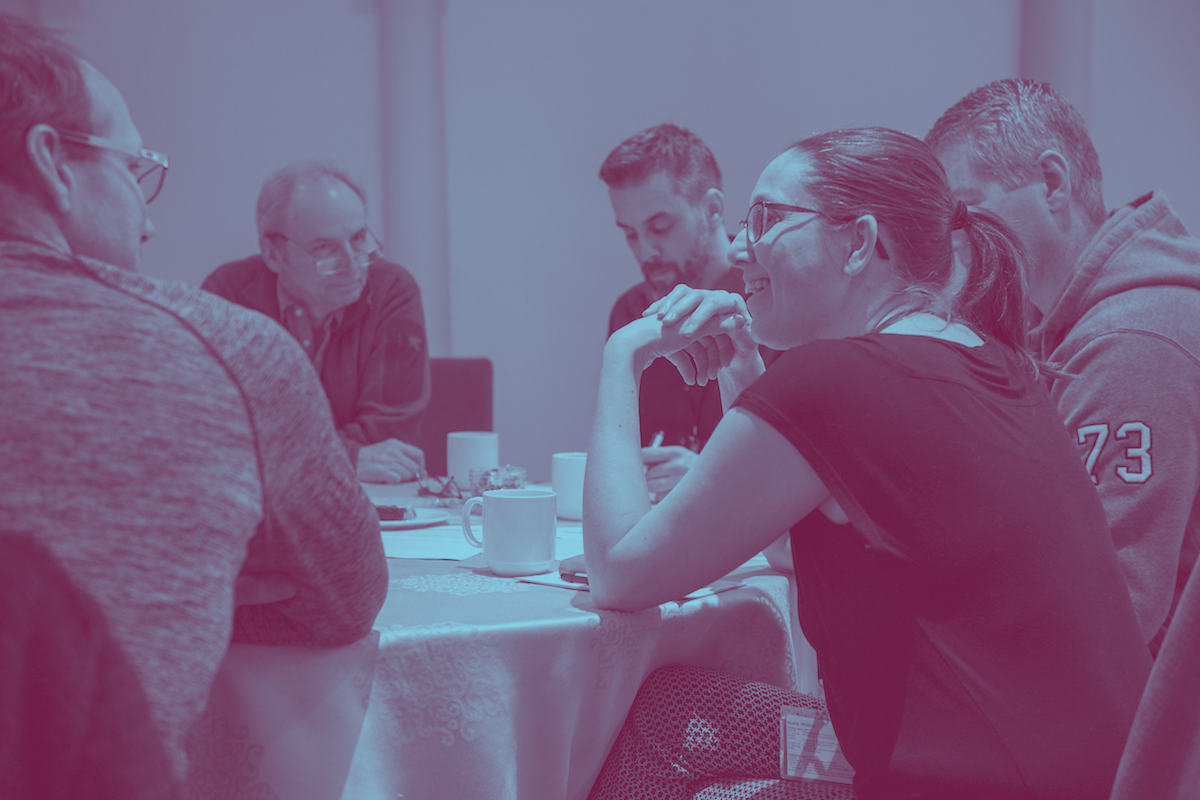
Faculty Relations & Faculty Development
Our faculty relations team provides wrap-around support to full- and part-time faculty in the areas of:
- Recruitment
- Orientation and onboarding
- Tenure and promotion
- Faculty development
- Mentorship
- Engagement, recognition and awards
- Faculty leaves
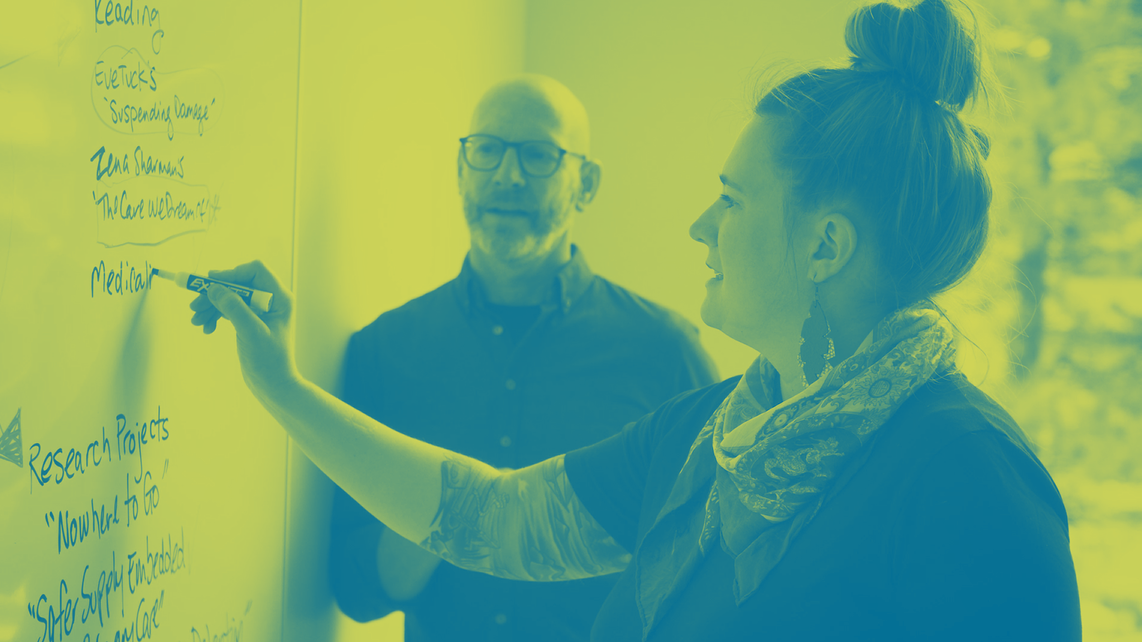
David Braley Primary Care Research Collaborative Learn More
The David Braley Primary Care Research Collaborative (PCRC) brings together the research, education and clinical care expertise of our strong network of primary care leaders. From the start of your career you will be a member of the PCRC and be supported in:
- Building research capacity throughout primary care
- Contributing new evidence to the field of primary care research and scholarship
- Sharing and implementing knowledge when and where it is needed
- Influencing policy change to improve the health of our communities
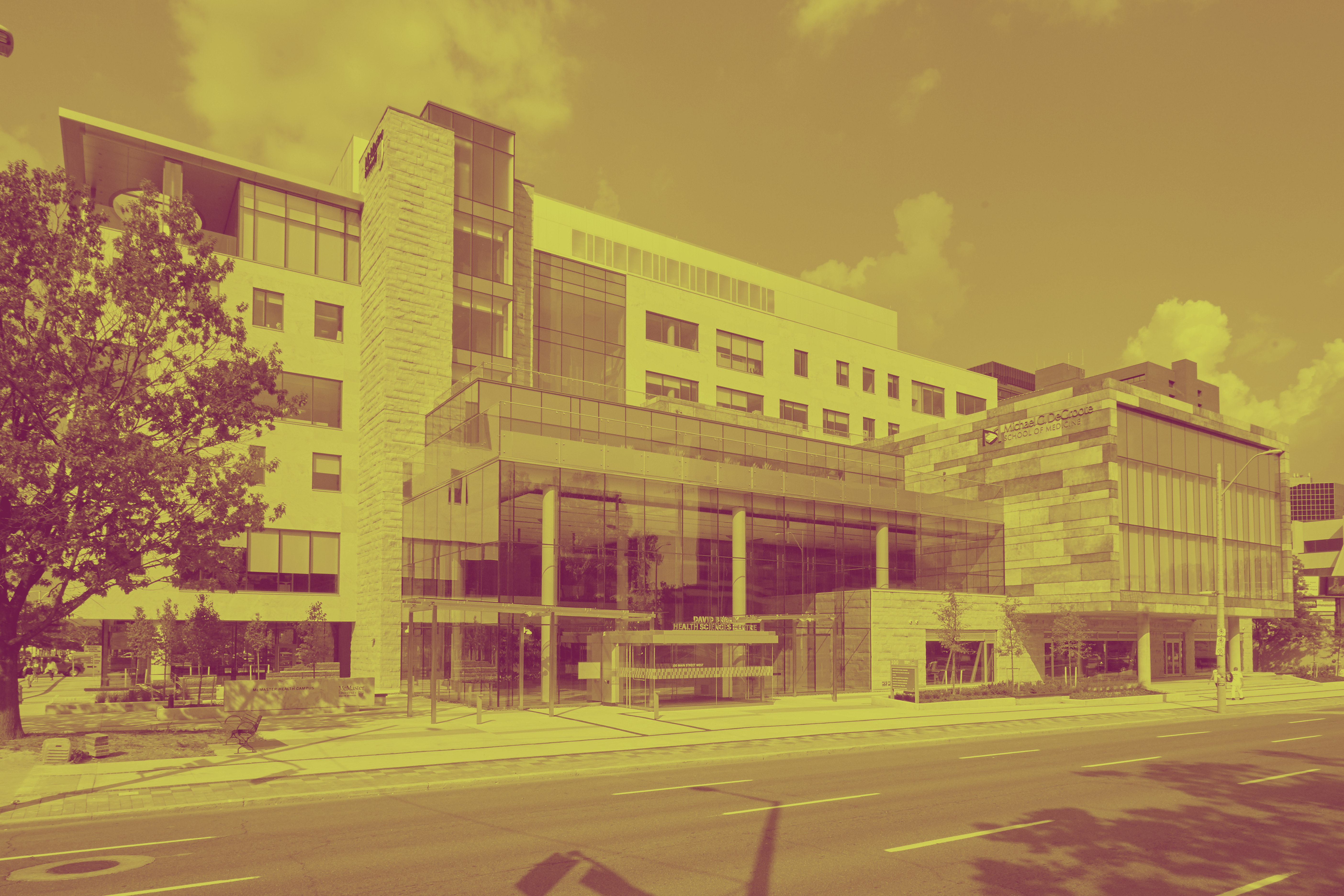
Continuing Professional Development Learn More
The Office of Continuing Professional Development within the Faculty of Health Sciences incorporates three key portfolios: Continuing Health Sciences Education, Faculty Development, and the Learning Technologies Lab. The CPD office works to advance health sciences and medical education as well as professional development opportunities for faculty members and health care professionals.

